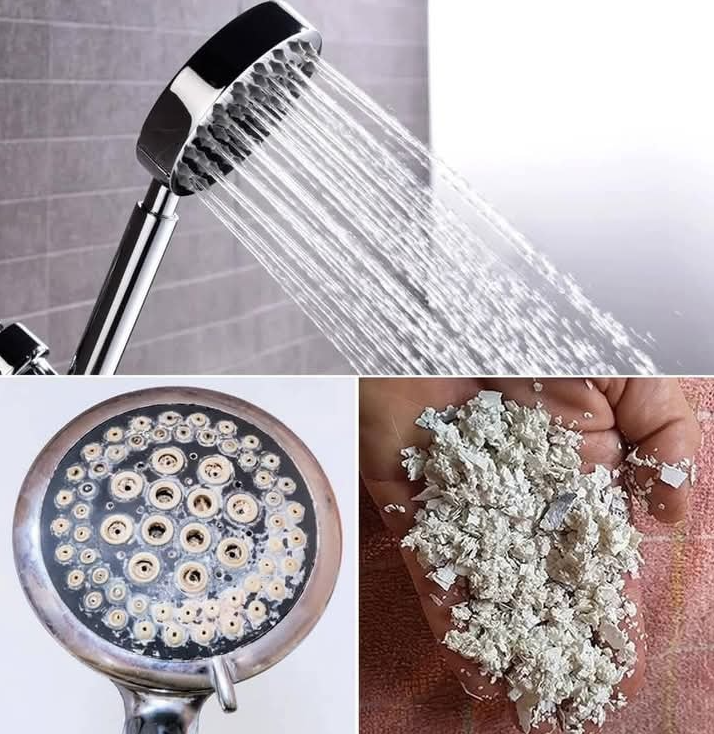-
1 cup white vinegar
-
1 ziplock bag (quart-size or larger)
-
Rubber band or twist tie
-
Old toothbrush or small scrub brush
-
Toothpick or sewing needle (optional)
-
Clean cloth or paper towels
-
Warm water
Preparation (Steps):
-
Detach or wrap the shower head:
-
If you can easily unscrew the shower head, remove it and place it in a bowl.
-
If it’s fixed in place, fill the ziplock bag with vinegar and wrap it around the shower head, securing with a rubber band.
-
-
Soak in vinegar:
-
Let the shower head soak in the vinegar for at least 1 hour, or overnight for tough buildup.
-
-
Scrub and unclog:
-
Remove the bag or take the shower head out of the vinegar.
-
Use a toothbrush to scrub the surface and loosen any remaining debris.
-
Use a toothpick or needle to gently poke through any blocked spray holes.
-
-
Rinse and reattach:
-
Rinse thoroughly with warm water to flush out loosened mineral deposits.
-
Reattach the shower head if removed.
-
-
Run hot water:
-
Turn on the hot water for a few minutes to clear any remaining residue. You’ll likely notice a stronger and more consistent spray immediately.
-
Serving and Storage Tips (Care Tips):
-
Repeat this process every 1–3 months depending on your water hardness.
-
After cleaning, dry the shower head with a soft cloth to prevent future buildup.
-
For best results, install a water filter at your shower to reduce mineral deposits long-term.
Variants (Alternative Methods):
-
Baking Soda Paste: Mix vinegar and baking soda into a paste and apply it directly to the holes before scrubbing.
-
Lemon Juice Alternative: Use lemon juice instead of vinegar for a gentler, citrus-scented clean.
-
Boil Method (for removable heads only): Boil the shower head in a pot of water with vinegar for deep cleaning.
FAQ:
Q: How often should I clean my shower head?
A: At least every 1–3 months depending on water quality and usage.
Q: What causes the shower head to clog?
A: Mineral buildup from hard water—mainly calcium and magnesium—blocks the small holes over time.
Q: Is vinegar safe for all types of shower heads?
A: Yes, but if your shower head is brass or has a special coating, limit soaking time to avoid damage.
Q: Can I use CLR or another chemical descaler instead of vinegar?
A: Yes, but always follow the manufacturer’s instructions and rinse thoroughly afterward.
Q: My water pressure is still low after cleaning. Why?
A: The issue might be with your plumbing or a clogged pipe aerator. If cleaning the shower head doesn’t help, you may need to investigate further.
